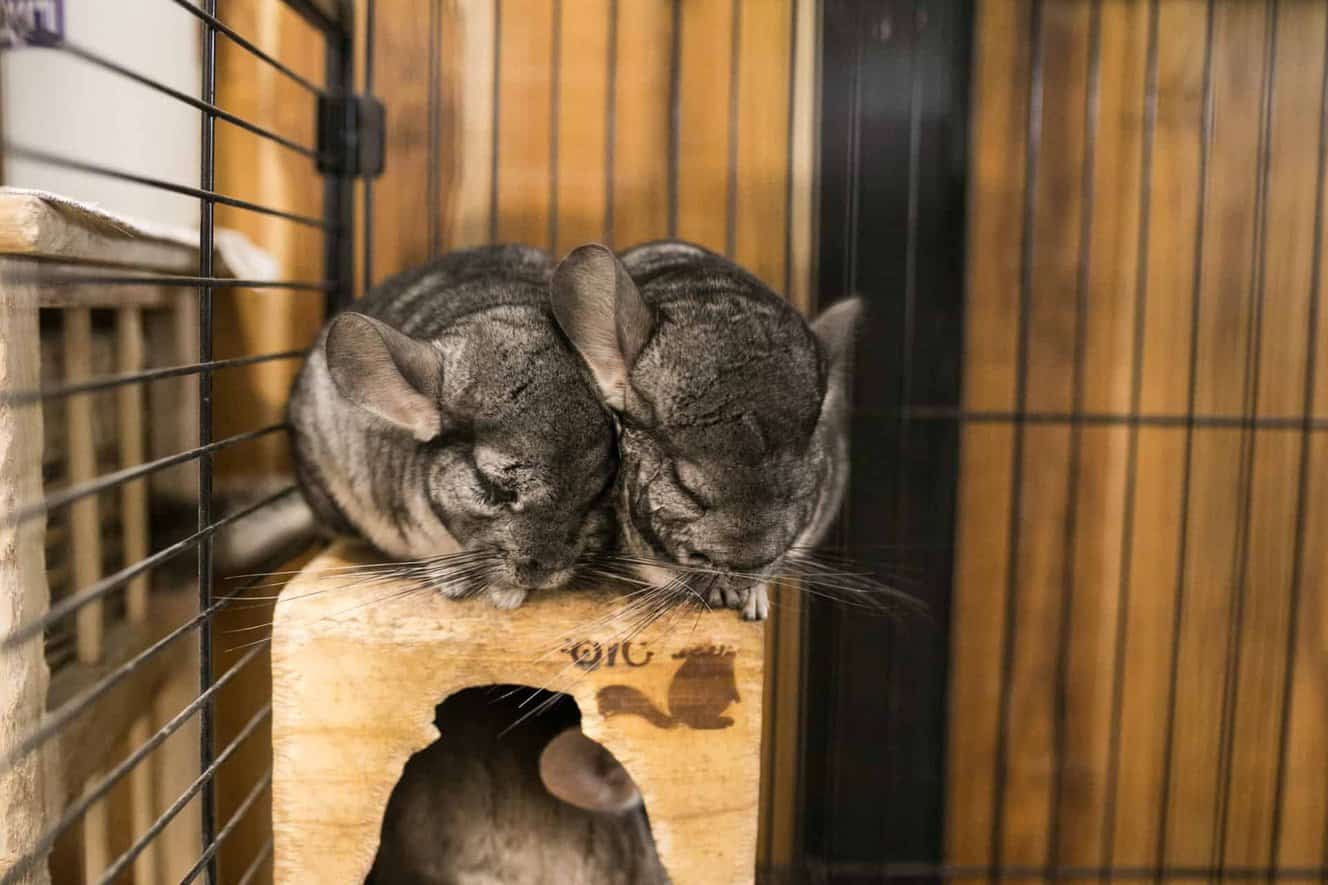
Unlike dogs, cats, rabbits and ferrets, chinchillas don’t require a yearly vaccination. This means that many are never taken to the vets for check-ups. That’s why it’s really important to give your chins a weekly health check yourself. As with all healthcare issues, prevention is better than cure – and spotting problems early can make all the difference to your chins enjoying a speedy recovery or becoming seriously ill.
To help you, we’ve put together a list of things to look out for that could indicate your pets are under the weather and need to see a chinchilla-expert vet, spit-spot.
Know what’s normal
Once you get to know your chinchillas, you’ll soon learn what’s normal for them. Visit your vet if you notice anything out of the ordinary, such as:
- Loss of appetite or overeating
- Drinking much more or less than normal
- Lack of energy
- Unusual bleeding
- Limping
- Diarrhoea
TOP TIP
Start a regular log of your chinchillas’ health checks by keeping a health diary. Note down anything – from an unusual lump, to bald patches or eye discharge. Your vet will find this really useful when it comes to diagnosing and treating any health problems.
Daily chin check
Getting into the habit of carrying out a daily health check is the best way to help you spot any signs of when your chinchillas might be feeling under the weather. To help your pets feel secure and relaxed, and to reduce their movement while you’re carrying out their health check, gently sit them in a loosely wrapped towel.
EYES Check your chins eyes are clear and fully open. If eyes are runny, you’ll need to get this looked at by your vet.
EARS Your chins ears should be clean and smooth. Look out for any unusual markings as these may be the result of infection. Watch to see if there is any scratching or rubbing of ears or head shaking, as this may be an indication of ear mites.
NOSE Ensure your chinchillas’ noses are clean and free from any liquids. If you notice liquid or discharge, make an appointment with your vet.
BODY AND COAT Gently feel for any unusual swellings, bald patches or signs of an abnormal skin condition. Also watch out for any signs of pain, such as sensitivity to touch.
DID YOU KNOW?
In the wild, if they are caught by a predator, chins have a defence mechanism called ‘fur slip’, which results in the predator being left with a tuft of fur while the chinchilla makes a speedy escape. Fur slip can occur in captivity if chinchillas are handled inappropriately.
MOUTH AND TEETH Chinchilla’s teeth keep growing constantly. They need to naturally wear their teeth down so they don’t get overgrown by chewing stuff – which is something they love to do. Give them some softwood branches to chew on (untreated apple or pear branches are ideal) or some Gnaw Sticks. Teeth should be checked to ensure they are not overgrown, broken or loose. If you notice any problems, seek advice from your vet.
Your chinchillas’ diet plays a really important part in keeping their teeth healthy. Avoid feeding them muesli-style mixes as chinchillas often only eat the parts that are high in sugar, which can cause painful dental disease.
Wild chinchillas are herbivores, who munch away on grasses, leaves, twigs, roots and stems. As pets, to mimic this, it’s vital to feed a fibre-rich diet based on grasses and hays. This means providing a minimum of their body size in feeding hay every day. Constant access to high quality hay, such as Excel Feeding Hay with Dandelion and Marigold, will also help your chinchillas' dental health. Their teeth grow continuously throughout their life and need to be worn down and kept at the correct length and shape by chomping on plenty of fresh, tasty hay.
If you found this interesting, you may also like:
WHY CHINCHILLAS LIKE TO CHILL OUT Find out more about these inquisitive and incredibly fluffy little animals, who can jump six feet in the air and sleep upside down…
TAKE A CLOSER LOOK AT YOUR PETS' DIET: CHINCHILLAS Chinchillas have very sensitive digestive systems and in the wild eat grasses, leaves, twigs, roots and stems. As pets, it’s essential that we feed them a diet that replicates what they would feed on naturally
9 INTRIGUING FACTS ABOUT CHINCHILLAS Become a chinchilla expert by finding out more about these endearing, silky-furred little animals, who like to sleep hunched up and have jaw-dropping jumping abilities...
BONDING WITH YOUR SMALL PETS Hand feeding is a great way to build a closer bond with small animals. It takes time to build trust, but when your little friend finally feels confident enough to take a treat from your hand, it’s a special moment. Our in-house vet Dr Suzanne Moyes has some tips...
Sources: pfma.org.uk, pdsa.org.uk














